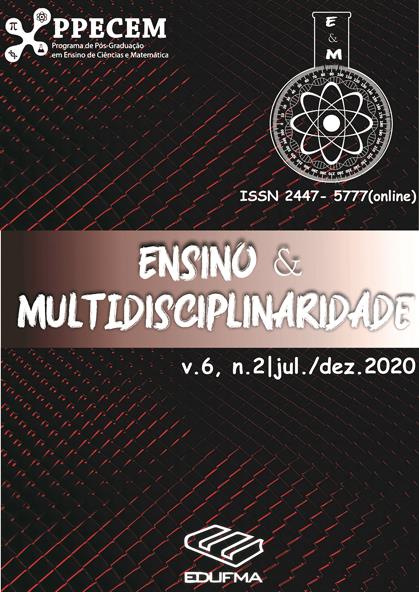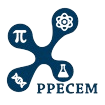Desinformação e negacionismo no ensino de ciências: sugestão de conhecimentos para se desenvolver uma alfabetização científica midiática
Mots-clés :
Desinformação, Alfabetização Científica Midiática, Ensino de Ciências, Redes SociaisRésumé
Com o advento da Internet e das redes sociais e o consequente enfraquecimento da mídia convencional, movimentos e grupos que visam espalhar desinformação e negar a ciência têm adquirido cada vez mais visibilidade, força e alcance em nossa sociedade. Se considerarmos que o principal papel da educação em ciências é a alfabetização científica (AC) dos cidadãos, visão esta preconizada pelos pesquisadores e pelos principais documentos curriculares nacionais e internacionais na área de ensino de ciências, podemos questionar qual responsabilidade o ensino da ciência deve assumir diante desse cenário de afirmações falsas e distorcidas, desinformação, fatos alternativos, contranarrativas, pseudociência e outras tendências comunicacionais da era da pós-verdade. Neste trabalho, fazemos inicialmente uma breve discussão sobre como os pesquisadores e os documentos curriculares na área de ensino de ciências concebem o conceito de AC e suas relações com a mídia. Notamos, a partir dessa revisão, a preocupação em incluir na educação formal conhecimentos sobre a mídia como meio de combater a disseminação de desinformação sobre ciências. Por fim, apresentamos alguns desses conhecimentos que julgamos essenciais para o desenvolvimento de uma alfabetização científica midiática dos estudantes.
AbstractThrough the popularization of the Internet and social media and the consequent weakening of the conventional media, movements and groups that aim to spread misinformation and deny science have acquired more influence in our society. If we consider that the main role of science education is the scientific literacy of citizens, a view supported by researchers and by the main national and international curricular documents in the field of science teaching, we can inquire what responsibility science teaching should assume in the face of this scenario of distorted and false information, misinformation, alternative facts, counter-narratives, pseudoscience and other communicational tendencies of the post-truth era. In this work, we initially make a brief discussion about how researchers and curricular documents in the field of science teaching conceive the concept of scientific literacy and its relations with the media. We noticed from this review, the concern to include knowledge about the media in formal education as a path of mitigating the dissemination of misinformation about science. Finally, we present the knowledge that we consider essential for the development of a scientific media literacy of students.
Keywords: Misinformation. Scientific Media Literacy. Science Teaching. Social Media.
Téléchargements
Références
ALLCHIN, D. What counts as science. American Biology Teacher, v. 74, p. 291–294, 2012a. Disponível em: https://online.ucpress.edu/abt/article/74/4/291/18429/What-Counts-as-Science . Acesso em: 10 mar. 2021.
ALLCHIN, D. Skepticism and the architecture of trust. American Biology Teacher, v. 74, p. 358–362, 2012b. Disponível em: https://www.jstor.org/stable/10.1525/abt.2012.74.5.17. Acesso em: 03 fev. 2021.
ALLCHIN, D. Science con‐artists. American Biology Teacher, v. 74, p. 661–666, 2012c. Disponível em: https://online.ucpress.edu/abt/article/74/9/661/92539/Science-Con-Artists. Acesso em: 03 fev. 2021.
ALLCHIN, D. Teaching the nature of science through scientific error. Science Education, v. 96, p. 904-926, 2012d. Disponível em: https://onlinelibrary.wiley.com/doi/full/10.1002/sce.21019. Acesso em: 21 mar. 2021.
ALLCHIN, D. Contextualizing creationists. The American Biology Teacher, v. 75, n. 2, p. 144–147, 2013. Disponível em: https://www.jstor.org/stable/10.1525/abt.2013.75.2.16. Acesso em: 11 fev. 2021.
ALLCHIN, D. Global warming: scam, fraud, or hoax?. American Biology Teacher, v. 77, p. 308–312, 2015. Disponível em: https://online.ucpress.edu/abt/article/77/4/309/18764/Global-WarmingScam-Fraud-or-Hoax. Acesso em: 30 mar. 2021.
ALLCHIN, D. Alternative facts and fake news. American Biology Teacher, v. 80, p. 631–633, 2018. Disponível em: https://online.ucpress.edu/abt/article/80/8/631/19109/Alternative-Facts-amp-Fake-News. Acesso em: 16 jan. 2021.
ALLCHIN, D.; ZEMPLÉN, G. A. Finding the place of argumentation in science education: epistemics and whole science. Science Education, v. 104, p. 907-933, 2020. Disponível em: https://onlinelibrary.wiley.com/doi/full/10.1002/sce.21589. Acesso em: 30 mar. 2021.
ALMEIDA, M. J. P. M. Discursos da ciência e da escola: ideologia e leituras possíveis. Campinas: Mercado das Letras, 2004.
BOYKOFF, M. T.; BOYKOFF, J. M. Balance as bias: global warming and the US prestige press. Global Environmental Change, v. 14, p. 125–136, 2004. Disponível em: https://pdf.sciencedirectassets.com/271866/1-s2.0-S0959378000X0060X/1-s2.0-S0959378003000669. Acesso em: 10 dez. 2020.
BRASIL. Secretaria de Educação Média e Tecnológica. Parâmetros Curriculares Nacionais: Ensino Médio Parte III- Ciências da Natureza, Matemática e suas Tecnologias. Brasília, DF, 1999. Disponível em: http://portal.mec.gov.br/expansao-da-rede-federal/195-secretarias-112877938/seb-educacao-basica-2007048997/12598-publicacoes-sp-265002211. Acesso em: 04 jan. 2021.
Téléchargements
Publié-e
Comment citer
Numéro
Rubrique
Licence
Autores que publicam nesta revista concordam com os seguintes termos:
a. Autores mantém os direitos autorais e concedem à revista o direito de primeira publicação, com o trabalho simultaneamente licenciado sob a Licença Creative Commons CC BY que permite o compartilhamento do trabalho com reconhecimento da autoria e publicação inicial nesta revista.
b. Autores têm autorização para assumir contratos adicionais separadamente, para distribuição não-exclusiva da versão do trabalho publicada nesta revista (ex.: publicar em repositório institucional ou como capítulo de livro), com reconhecimento de autoria e publicação inicial nesta revista.
c. Autores têm permissão e são estimulados a publicar e distribuir seu trabalho online (ex.: em repositórios institucionais ou na sua página pessoal) após a publicação final do manuscrito.



















